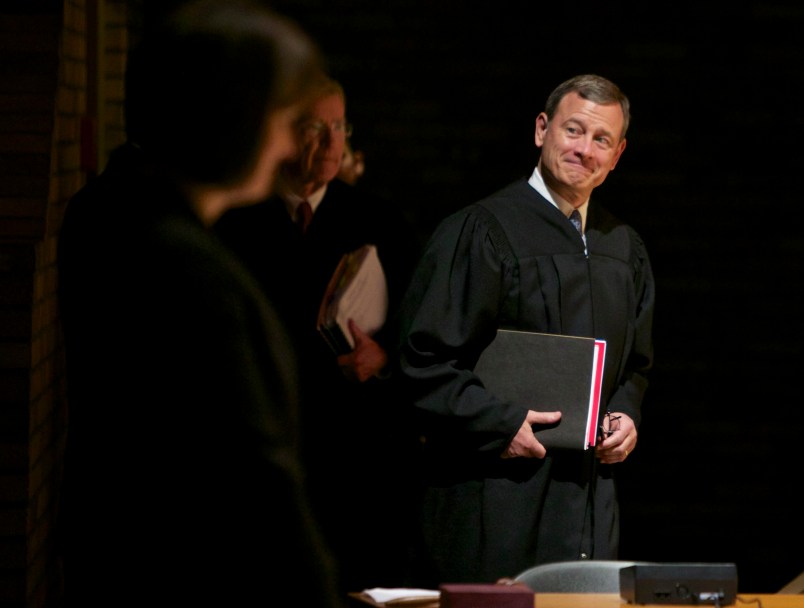The Supreme Court in a surprise move has decided to take up the issue of whether the tax subsidies that are essential to the Obamacare economic model are available on the federal exchanges. The tendentious argument from Obamacare opponents is that the law itself, in one obscure provision, only provides for subsidies on exchanges set up by states — even though that was clearly not what the law as whole means or what Obamacare proponents in Congress or the White House intended. So just to be clear, this is a very significant legal attack on the law, even though it was a laughable line of attack when it was first initiated.
Today’s move by the Supreme Court is a surprise because the full DC Circuit Court of Appeals is about to review the same issue in the Halbig case. Oral arguments are scheduled in Halbig next month. Nothing is certain, of course, but the full DC Circuit is expected to reverse an early decision of a three-judge panel that invalidated the subsidies. So that was supposed to be the next big legal decision on the issue.
But in the meantime, anti-Obamacare plaintiffs in another similar case asked the Supreme Court to review the decision of the 4th Circuit Court of Appeals which upheld the subsidies. That case, King v. Burwell, is what the Supreme Court agreed to take today.
Here’s the rub.
One of the major standards the Supreme Court uses to determine whether to accept a case is whether there is disagreement among the circuit courts. In this instance, with the full DC Circuit’s en banc review pending in Halbig and expected to agree with the 4th Circuit’s decision in King, the Supreme Court has jumped in and taken up the issue.
I’m not a Supreme Court expert, but it seems on its face like a pretty brazen move by the Court. There was some inkling earlier this week that this could be happening but generally it was unexpected, a bit shocking, and stands in sharp contrast to the decision the court made last month, for example, not to take up any gay marriage cases until the circuits were in clear disagreement.
It will be very interesting to see the reaction to this from legal scholars and court observers.






